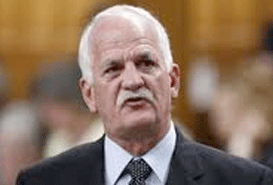Big announcement, tiny bucks. You’d think the Tories would be embarrassed to put out this press release, but little does turn them pink. Maybe that’s because the colour of embarrassment is the colour of doing service for Canadians
 Today Vic Toews, Canada’s Minister of Public Safety, announced the next call for proposals for the Communities at Risk: Security Infrastructure Program (SIP).
Today Vic Toews, Canada’s Minister of Public Safety, announced the next call for proposals for the Communities at Risk: Security Infrastructure Program (SIP).
“As part of our government’s strong commitment to preventing hate crimes and making our streets safe, we are pleased to announce that the Communities at Risk: Security Infrastructure Program is once again accepting applications,” said Minister Toews. “This program helps communities fight against hate-motivated crimes so that they can pursue their beliefs, culture, and activities peacefully, without fear of harm.”
The National Crime Prevention Centre’s SIP provides funding for security enhancements to places of worship, provincially recognized educational institutions and community centres with a demonstrated history of being victimized by hate-motivated crime at their project site or in its immediate geographic area.
Organizations have until 12:00am, Pacific Standard Time (PST), on March 26, 2013 to submit their applications. Eligible costs under the SIP include:
§ security assessments (not to exceed 25% of total project costs);
§ minor construction costs related to the project, including fees for contractors, labour and equipment rental required to install security infrastructure;
§ security equipment and hardware costs, including alarm systems, fences, gates, lighting, security film for windows, closed-circuit television systems, exterior cameras, relocation of existing exterior cameras, anti-graffiti sealant, motion detectors, signage and landscaping; and
§ training costs for proper use of new security equipment.
Canada’s Economic Action Plan has a number of initiatives to help ensure that all Canadians can feel safe in their own communities, including $1 million annually for the SIP.
 TheBulletin.ca Journal of Downtown Toronto
TheBulletin.ca Journal of Downtown Toronto

